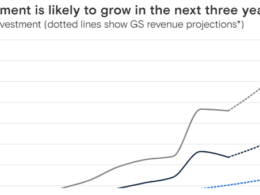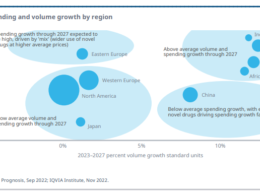thehealthtransformation
.foundation
Joaquim Cardoso MSc
February 9, 2024
This summary is based on the article “Cisco AI Readiness Index finds that ambition is still outpacing readiness” published by Venture Beat on January 31, 2024.
What is the message?
The inaugural Cisco AI Readiness Index reveals a significant gap between the ambition to deploy AI technologies and the actual readiness of organizations to do so effectively.
Despite heightened pressure from senior leaders and boards of directors, a substantial 86% of companies find themselves unprepared to leverage AI to its fullest potential due to talent shortages, knowledge gaps, and inadequate infrastructure.

What are the key points?
Pressure to Deploy AI: A staggering 97% of senior business leaders feel increased pressure to adopt AI technologies, driven mainly by top-level directives. However, organizational readiness often falls short of ambitious demands.
Challenges of Generative AI: The democratization of generative AI has widened the scope of AI transformation, but companies struggle with talent acquisition, knowledge dissemination, and resource allocation to fully exploit its potential.
AI Readiness Index Findings: Despite 95% of respondents claiming to have highly-defined AI strategies, critical gaps exist across six key pillars: strategy, infrastructure, data, governance, talent, and culture.
Levels of Readiness: Organizational readiness is categorized into four levels: Pacesetters, Chasers, Followers, and Laggards, with only 14% of companies considered fully prepared.
Importance of Talent and Culture: Human expertise and organizational culture play pivotal roles in AI adoption, with top-down support and employee training essential for successful integration.
Turning Strategy into Action: While impressive AI strategies abound, tangible investments in infrastructure, talent, and governance are crucial for translating plans into impactful outcomes.
Infrastructure Challenges: The rapid evolution of AI necessitates robust infrastructure investments, including high-performance computing, data management solutions, and cybersecurity measures.
Data Governance: High-quality, accessible data is fundamental for AI success, yet many organizations struggle with data silos, quality checks, and regulatory compliance.
Immediate Priorities: Organizations must focus on immediate priorities such as infrastructure investment, talent acquisition, and pilot projects while keeping long-term objectives in sight.
What are the key examples?
Despite the prevalence of highly-defined AI strategies, many organizations lack defined metrics for measuring impact and long-term funding plans.
The Cisco AI Readiness Index categorizes organizational readiness into four levels, highlighting the disparity between ambition and preparedness.
Talent shortages and data governance issues pose significant challenges to effective AI adoption, underscoring the importance of human expertise and data quality.
What are the key strategies?
Foster AI-Ready Culture: Promote top-down support and invest in employee training to ensure widespread adoption and utilization of AI tools.
Translate Strategy into Action: Allocate resources towards infrastructure, talent acquisition, and governance to support AI implementation and drive tangible outcomes.
Address Infrastructure Needs: Invest in high-performance computing, data management solutions, and cybersecurity measures to support AI deployment effectively.
Prioritize Data Governance: Establish central data management policies, address data silos, and ensure compliance with regulatory requirements to optimize data utilization.
Focus on Immediate Priorities: Balance short-term objectives such as talent acquisition and pilot projects with long-term strategic planning to capitalize on emerging opportunities.
Conclusion
The Cisco AI Readiness Index underscores the urgency for organizations to bridge the gap between ambition and readiness in AI adoption.
By prioritizing talent development, infrastructure investment, and data governance, companies can navigate the complexities of AI implementation and capitalize on its transformative potential in the long run.
To read the original publication, click here.












